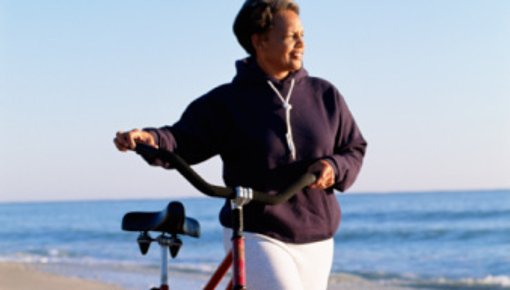Ahlberg K, Ekman T, Gaston-Johansson F et al. Assessment and management of cancer-related fatigue in adults. Lancet 2003; 362(9384): 640-650.
Beckermann MJ. Die ambulante Begleitung von Frauen nach Krebserkrankungen. In: Beckermann MJ, Perl FM (Ed). Frauen-Heilkunde und Geburts-Hilfe. Basel: Schwabe; 2004. S. 1694-1700.
Benkel I, Wijk H, Molander U. Using coping strategies is not denial: helping loved ones adjust to living with a patient with a palliative diagnosis. J Palliat Med 2010; 13(9): 1119-1123.
Chunlestskul K, Carlson LE, Koopmans JP et al. Lived experiences of Canadian women with metastatic breast cancer in preparation for their death: a qualitative study. Part II – enabling and inhibiting factors; the paradox of death preparation. J Palliat Care 2008; 24(1): 16-25.
Danesh M, Belkora J, Volz S et al. Informational needs of patients with metastatic breast cancer: what questions do they ask, and are physicians answering them? J Cancer Educ 2014; 29(1): 175-180.
Davies M, Sque M. Living on the outside looking in: a theory of living with advanced breast cancer. Int J Palliat Nurs 2002; 8(12): 583-590.
DeSanto-Madeya S, Bauer-Wu S, Gross A. Activities of daily living in women with advanced breast cancer. Oncol Nurs Forum 2007; 34(4): 841-846.
Deutsche Gesellschaft für Gynäkologie und Geburtshilfe (DGGG), Deutsche Krebsgesellschaft (DKG). Interdisziplinäre S3-Leitlinie für die Früherkennung, Diagnostik, Therapie und Nachsorge des Mammakarzinoms. AWMF-Registernr.: 032-045OL. 2021.
Deutsche Krebsgesellschaft (DKG), Deutsche Krebs-Hilfe (DKH), Deutsche Gesellschaft für Palliativmedizin (DGP). Erweiterte S3-Leitlinie Palliativmedizin für Patienten mit einer nicht-heilbaren Krebserkrankung. AWMF-Registernr.: 128-001OL. 2020.
Deutsches Krebsforschungszentrum (DKFZ), Krebsinformationsdienst (KID). Weibliche Sexualität und Krebs. Ein Ratgeber für Patientinnen und ihre Partner oder ihre Partnerinnen. 2021.
Frauenselbsthilfe nach Krebs (Bundesverband). Soziale Informationen. 2019.
Gray R, Fitch M, Davis C et al. A qualitative study of breast cancer self-help groups. Psychooncology 1997; 6(4): 279-289.
Hilton BA, Gustavson K. Shielding and being shielded: children's perspectives on coping with their mother's cancer and chemotherapy. Can Oncol Nurs J 2002; 12(4): 198-217.
Kenne Sarenmalm E, Thoren-Jonsson AL, Gaston-Johansson F et al. Making sense of living under the shadow of death: adjusting to a recurrent breast cancer illness. Qual Health Res 2009; 19(8): 1116-1130.
Krigel S, Myers J, Befort C et al. "Cancer changes everything!" Exploring the lived experiences of women with metastatic breast cancer. Int J Palliat Nurs 2014; 20(7): 334-342.
Lee Mortensen G, Madsen IB, Krogsgaard R et al. Quality of life and care needs in women with estrogen positive metastatic breast cancer: a qualitative study. Acta Oncol 2018; 57(1): 146-151.
Lewis FM, Deal LW. Balancing our lives: a study of the married couple's experience with breast cancer recurrence. Oncol Nurs Forum 1995; 22(6): 943-953.
Lewis S, Willis K, Yee J et al. Living Well? Strategies Used by Women Living With Metastatic Breast Cancer. Qual Health Res 2016.
Loiselle CG, Lambert SD, Cooke A. The searching, processing, and sharing of breast cancer information by women diagnosed with the illness. Can J Nurs Res 2006; 38(3): 82-104.
Luoma ML, Hakamies-Blomqvist L. The meaning of quality of life in patients being treated for advanced breast cancer: a qualitative study. Psychooncology 2004; 13(10): 729-739.
McClelland SI, Holland KJ, Griggs JJ. Vaginal Dryness and Beyond: The Sexual Health Needs of Women Diagnosed With Metastatic Breast Cancer. J Sex Res 2015; 52(6): 604-616.
Mosher CE, Johnson C, Dickler M et al. Living with metastatic breast cancer: a qualitative analysis of physical, psychological, and social sequelae. Breast J 2013; 19(3): 285-292.
Neises M, Brandenburg U. Sexualstörungen bei Karzinom-Patientinnen. In: Beckermann MJ, Perl FM (Ed). Frauen-Heilkunde und Geburts-Hilfe. Basel: Schwabe; 2004. S. 1726-1740.
Neises M, Debus G. Interpersonale Ressourcen, soziale Unterstützung. In: Beckermann MJ, Perl FM (Ed). Frauen-Heilkunde und Geburts-Hilfe. Basel: Schwabe; 2004. S. 1680-1686.
Svensson H, Brandberg Y, Einbeigi Z et al. Psychological reactions to progression of metastatic breast cancer: an interview study. Cancer Nurs 2009; 32(1): 55-63.
Turner J, Clavarino A, Yates P et al. Development of a resource for parents with advanced cancer: what do parents want? Palliat Support Care 2007; 5(2): 135-145.
Willis K, Lewis S, Ng F et al. The experience of living with metastatic breast cancer: a review of the literature. Health Care Women Int 2015; 36(5): 514-542.
Wu HS, McSweeney M. Cancer-related fatigue: "It's so much more than just being tired". Eur J Oncol Nurs 2007; 11(2): 117-125.
IQWiG-Gesundheitsinformationen sollen helfen, Vor- und Nachteile wichtiger Behandlungsmöglichkeiten und Angebote der Gesundheitsversorgung zu verstehen.
Ob eine der von uns beschriebenen Möglichkeiten im Einzelfall tatsächlich sinnvoll ist, kann im Gespräch mit einer Ärztin oder einem Arzt geklärt werden. Gesundheitsinformation.de kann das Gespräch mit Fachleuten unterstützen, aber nicht ersetzen. Wir bieten keine individuelle Beratung.
Unsere Informationen beruhen auf den Ergebnissen hochwertiger Studien. Sie sind von einem Team aus Medizin, Wissenschaft und Redaktion erstellt und von Expertinnen und Experten außerhalb des IQWiG begutachtet. Wie wir unsere Texte erarbeiten und aktuell halten, beschreiben wir ausführlich in unseren Methoden.

